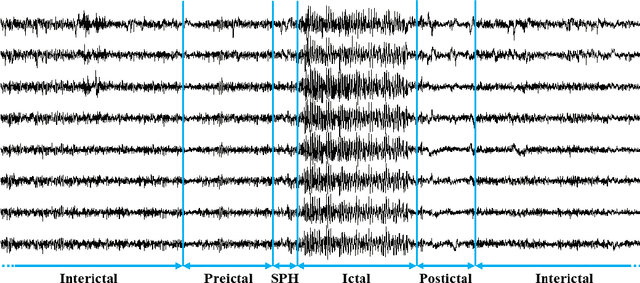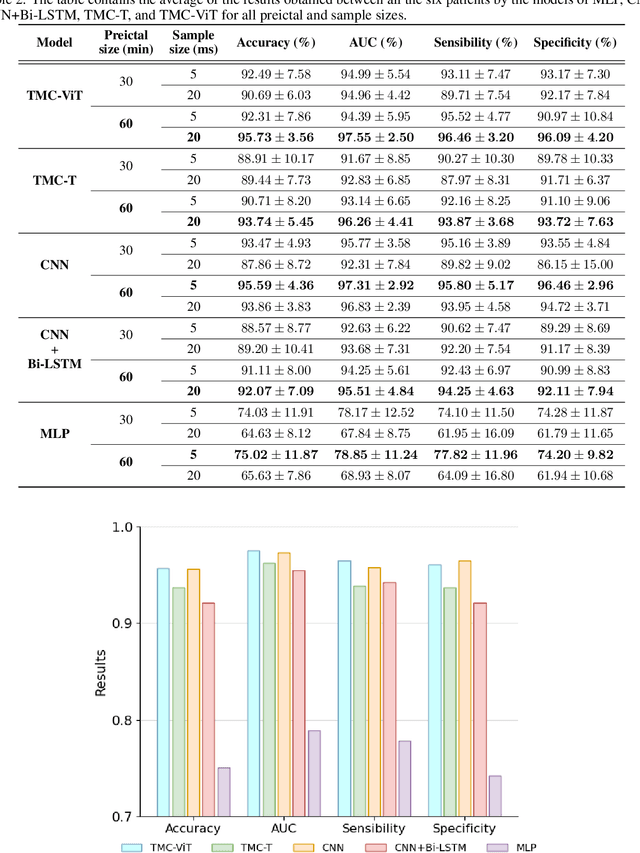EEG-Based Epileptic Seizure Prediction Using Temporal Multi-Channel Transformers
Paper and Code
Sep 18, 2022



Epilepsy is one of the most common neurological diseases, characterized by transient and unprovoked events called epileptic seizures. Electroencephalogram (EEG) is an auxiliary method used to perform both the diagnosis and the monitoring of epilepsy. Given the unexpected nature of an epileptic seizure, its prediction would improve patient care, optimizing the quality of life and the treatment of epilepsy. Predicting an epileptic seizure implies the identification of two distinct states of EEG in a patient with epilepsy: the preictal and the interictal. In this paper, we developed two deep learning models called Temporal Multi-Channel Transformer (TMC-T) and Vision Transformer (TMC-ViT), adaptations of Transformer-based architectures for multi-channel temporal signals. Moreover, we accessed the impact of choosing different preictal duration, since its length is not a consensus among experts, and also evaluated how the sample size benefits each model. Our models are compared with fully connected, convolutional, and recurrent networks. The algorithms were patient-specific trained and evaluated on raw EEG signals from the CHB-MIT database. Experimental results and statistical validation demonstrated that our TMC-ViT model surpassed the CNN architecture, state-of-the-art in seizure prediction.
 Add to Chrome
Add to Chrome Add to Firefox
Add to Firefox Add to Edge
Add to Edge